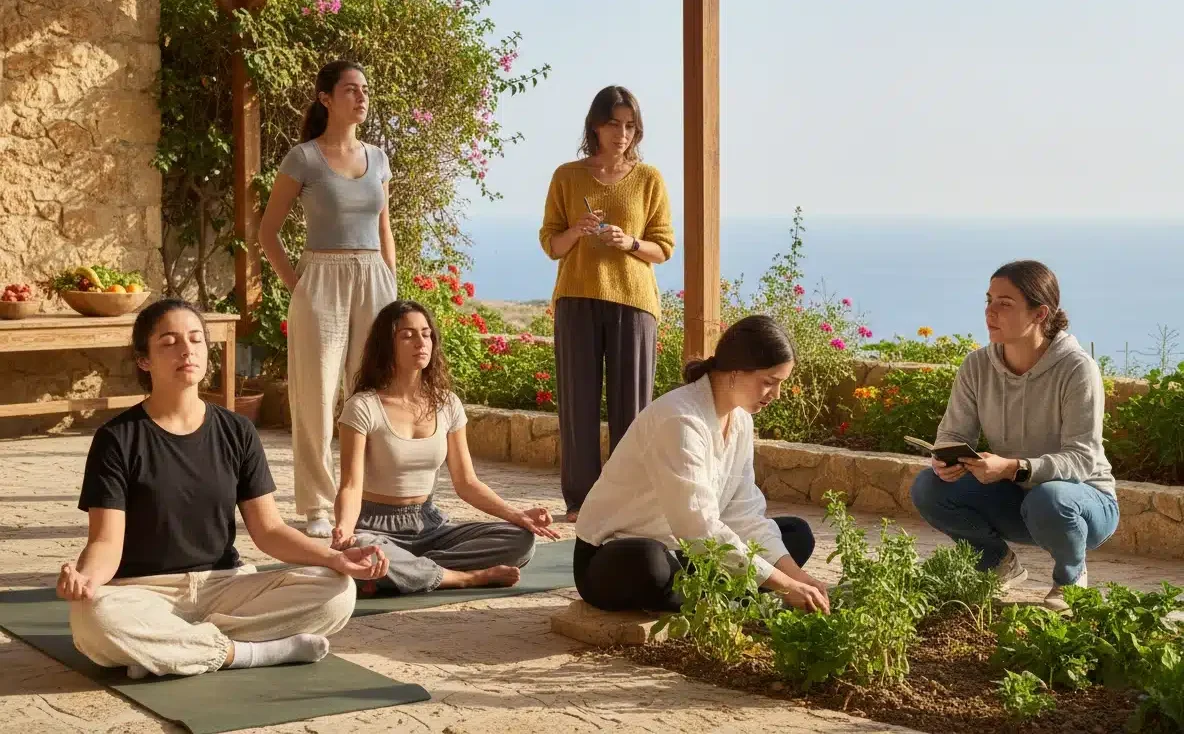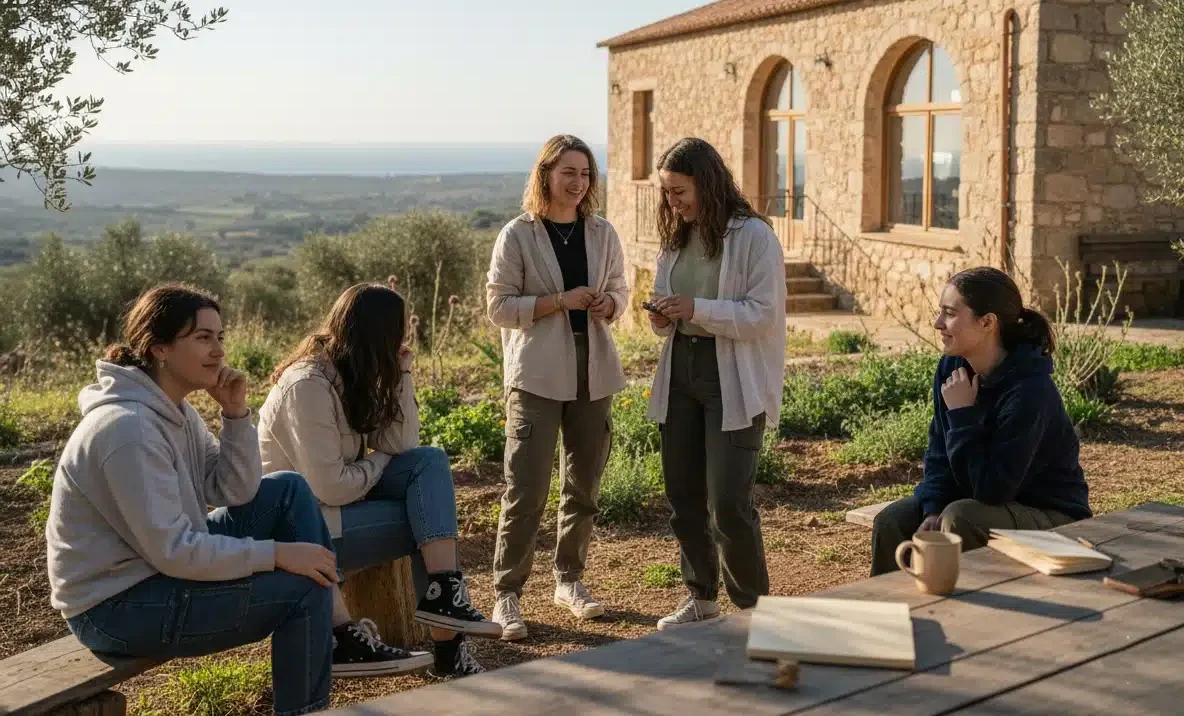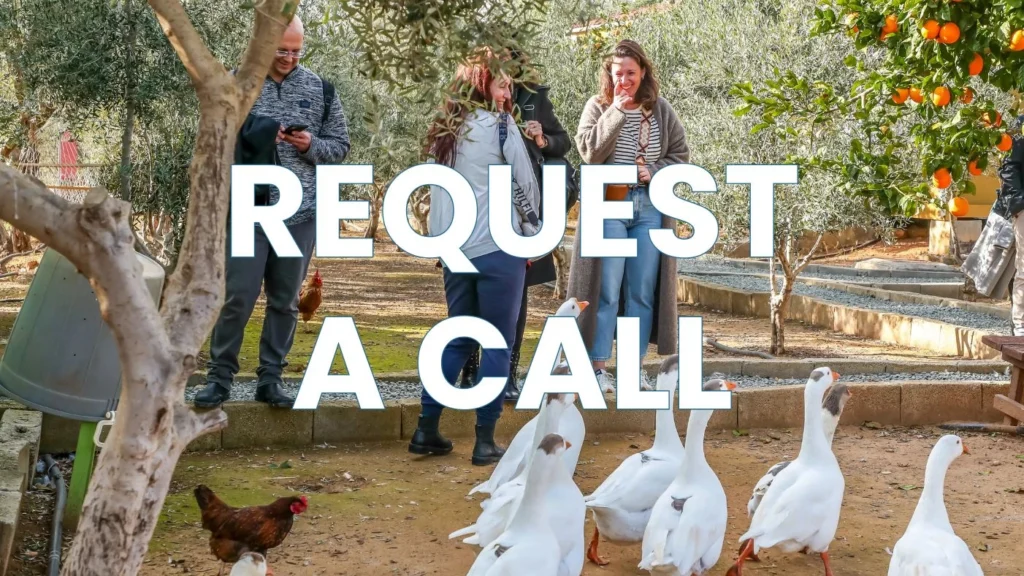Am I Struggling—or Just Stressed? Early Signs of Emotional Collapse
05 min read

Introduction
Everyone feels stressed sometimes—but what happens when stress becomes something deeper? For many young people aged 16–25, the pressure of modern life slowly erodes their mental, emotional, and physical wellbeing. What starts as anxiety or burnout can evolve into what we call emotional collapse—a state of deep disconnection, exhaustion, and overwhelm.
At Holina Cyprus, we help young people identify when they’ve moved beyond everyday stress into a more serious emotional state. Our trauma-informed, holistic approach focuses not just on what’s wrong, but what’s missing: safety, regulation, connection, and hope.
In this blog, we explore how to distinguish stress from emotional collapse, the warning signs to look out for, and how young people can start healing.
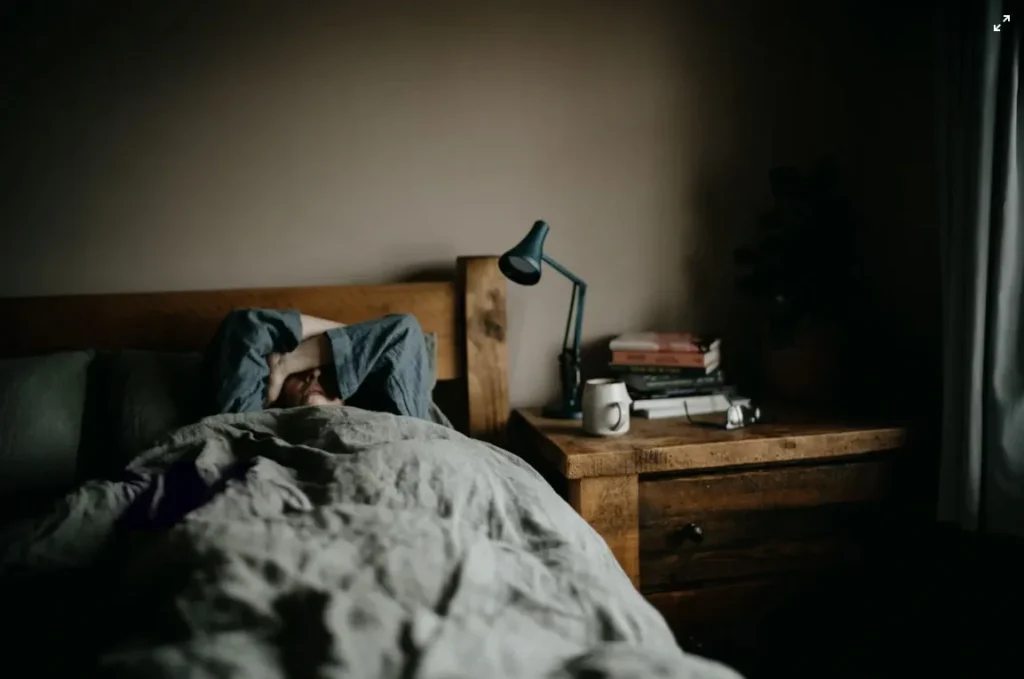
What Is Emotional Collapse?
Emotional collapse is when a person’s nervous system can no longer handle stress. It’s not about being “too sensitive” or “lazy”—it’s a shutdown that often follows prolonged emotional overload.
It can feel like:
Losing interest in everything
Feeling emotionally numb or constantly overwhelmed
Having trouble getting out of bed
Withdrawing from relationships
Feeling like a burden
Losing a sense of meaning or identity
For young people still forming their sense of self, this collapse can be especially frightening—and often mistaken for laziness, rebellion, or failure.
Is It Just Stress—Or Something Deeper?
Here’s how to tell the difference:
Stress
Short-term
Specific triggers (e.g., exams, deadlines)
Motivation still exists
Rest and support bring relief
Emotional Collapse
Persistent and chronic
No clear trigger
Feeling hopeless or apathetic
Even rest doesn’t help
Self-care feels impossible
Young people often describe this shift as “going numb” or “shutting down.” Their energy disappears, but so does their ability to ask for help.
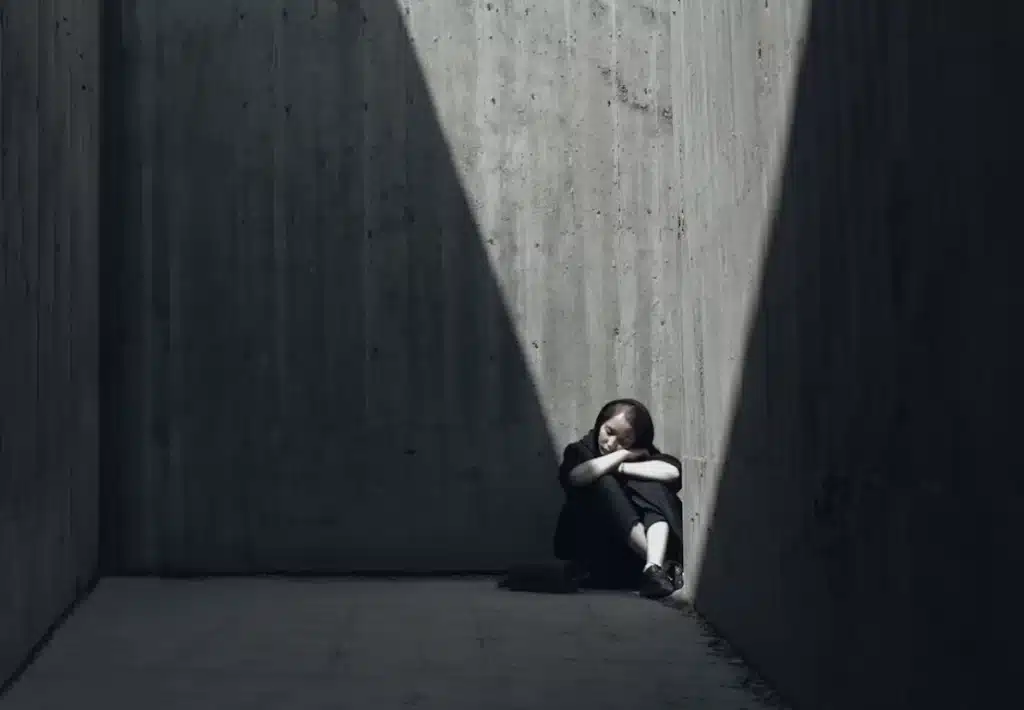
Early Signs to Watch For
Whether you’re a parent, teacher, or young person yourself, these early signs matter:
Persistent fatigue, even after sleep
Isolation from friends or family
Increased irritability or emotional outbursts
Loss of interest in hobbies or goals
A drop in academic performance or attendance
Self-harming behaviours or risky decisions
Expressions of hopelessness or being “done”
Avoidance of responsibilities or commitments
📌 Related: Self-Harm Recovery for Ages 16–25 →
Why Early Intervention Matters
Left untreated, emotional collapse can lead to depression, anxiety, addiction, or suicidal ideation. But caught early, it’s fully reversible.
At Holina Cyprus, we take every sign seriously—because healing is always possible, especially when support is offered before crisis hits.
Early care helps:
Re-regulate the nervous system
Prevent destructive coping strategies
Restore motivation and emotional resilience
Rebuild trust in relationships and self-worth
The earlier we catch it, the gentler the recovery can be.

How Holina Cyprus Supports Young People in Collapse
At Holina Cyprus, we meet young people with patience, skill, and respect. Our programme is designed for those who can’t “just snap out of it”—and shouldn’t have to.
We provide:
Trauma-informed therapy to understand emotional overload
Somatic and mindfulness tools to regulate the nervous system
Creative and expressive outlets when words are too hard
Daily structure to rebuild rhythm without overwhelm
Holistic support including yoga, meditation, nutrition, and bodywork
Every aspect of care—from our seaside location to our small peer groups—is designed to reduce pressure and rebuild internal strength.
Unique Features of Holina’s Emotional Recovery Programme
Mediterranean setting promotes rest and emotional safety
Individualised case management ensures personalised attention
Integrated therapies from EMDR to breathwork and expressive arts
Balanced daily schedule allows for both rest and progress
Warm, bilingual staff with expertise in trauma, adolescence, and dual diagnosis
We don’t rush healing. We build the conditions that let it happen naturally.
Final Thoughts
If you’re unsure whether you’re “just stressed” or facing something deeper, that’s okay. Emotional collapse is subtle—until it’s not. What matters is noticing the signs and reaching out.
At Holina Cyprus, we specialise in guiding young people aged 16–25 back from emotional shutdown into connection, clarity, and calm.
You don’t need to crash to change. You just need to feel safe enough to begin.
FAQs
What is emotional collapse?
It’s a state of psychological shutdown caused by chronic stress and unresolved emotional overload. It often mimics depression but stems from burnout.
How is it treated at Holina Cyprus?
We combine trauma-informed therapy with body-based and creative modalities, creating a safe, structured environment where healing can begin.
How can I tell if it’s just stress?
If symptoms persist, worsen, or affect daily function, it’s more than stress. Collapse often feels like emotional numbness or complete exhaustion.
Can this programme help without substance use?
Yes. Many guests at Holina come for emotional or behavioural challenges, not addiction. We meet each person based on their individual needs.
What age is this programme designed for?
Our programme supports young people aged 16–25, with specialised care for both older adolescents and young adults.
What if I can’t talk about how I feel?
That’s okay. We offer non-verbal therapies like movement, art, sound, and nature therapy—ways to heal without needing to explain everything.
How long is the programme?
Stays typically range from 4 to 12 weeks. We’ll help determine what’s right for you after assessment.
Is the environment private and supportive?
Yes. We offer a peaceful, private setting with small groups and compassionate staff, designed for rest, reflection, and emotional safety.
Can parents or guardians be involved?
Yes, where appropriate. We offer optional family communication and support throughout your stay.
How do I get started?
Reach out for a confidential assessment:
📧 info@holinacyprus.com
📱 +66 (0) 62641-8369
🌐 www.holinacyprus.com





